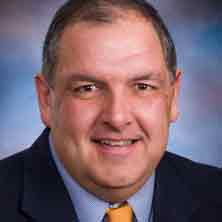
We spend more of our day with our boss and coworkers than we do with our spouse and children. Yet, we spend far less time choosing coworkers than we do our spouse. We date our sweetheart months or years before we marry. Yet, we will move across the country or invite someone to move based on decisions made after what essentially is a blind date.
How crazy is it to propose marriage the day after the first date?
It’s an apt analogy in both the nonprofit and for-profit sectors: The hiring process is often like a first date, or even a blind date. Everyone is dressed in their finest clothing. We are smiling and aware of every detail. We prepare and plan the day down to the minutes. And yet, after a few virtual meetings and one or two in-person meetings, the employer will transform the composure of the team, and the candidate will make a life-changing decision. That is not the way to ensure long-term success for the organization or candidate. Fortunately, there is a better option—whether you’re the candidate or the person doing the hiring.
There is a Better Way
Lee Williams-Lopapa is a consultant specializing in finding the right candidate for the right position. With more than three decades of experience, she knows what works and what fails when hiring a candidate. They key, she says, is to, “Realize recruiting is an investment. Not just in dollars, but also in time, morale, team-gelling, trust-building, leadership, and donor perception of the organization.” Organizations sometimes do not recognize how important hiring the right person can be. As she says, the goal is to not have the position, “Vacant six months from now.” And retention is a problem many nonprofits struggle with
Here are some ideas based on her successful career in placing candidates in nonprofit roles, aided by her experience as a nonprofit fundraiser for several organizations.
If you are looking for a position, you must remember your current job is to be the best candidate you can be. Be good at it. Williams-Lopapa says the key is to be aware. Be informed. Be knowledgeable about what the position requires and how your unique set of skills and experiences will fill that role. Here are questions she recommends to ask yourself to help you prepare.
Williams-Lopapa says the one obvious thing every candidate should do, but many overlook, is to read the job description. Recruiters like Williams-Lopapa take great care to write a map for the process, which is the position description. A byproduct of the description is that it forces the employer to be explicit about what it seeks. Use that as a map for your success.
She says you can score with the recruiter by showing you have read and know the job description. Here’s an insider tip: demonstrate your familiarity with the job description by asking the recruiter insightful questions about it. The organization has told you what it wants, so do everything you can to show why you are the person who is the answer to its question.
When it is time to find the perfect candidate, let the recruiter do what he or she does best: be your partner. The recruiter will do the bulk of the work, but the organization should do its part. Here are some more things a nonprofit can do to ensure it gets the right person.
Remember, this is more than a paperwork exercise. This is one of the most personal things a candidate can do. Respect that. The candidate has given you access to intimate details about his or her life, as well as tender details of hopes, wishes and dreams. The candidate has also spent hours studying, preparing a resume and cover letter and perhaps filling out forms your organization requires. Honor that, and remember you are not considering a set of skills or a resume. You are talking with people who have responded to your call.
The candidate may also be a donor.
Williams-Lopapa says a good recruiter will follow-up after the position is filled. She will ask questions about how it is going. The recruiter will also ask if there is anything about the process that could have been better. Information and communication are the key, and both should be exchanged freely and often between the organization and recruiter from the first meeting until months after the position is filled. The organization can thank the recruiter by recommending him or her to other organizations, or by simply hiring the recruiter again. That, ultimately, is a sign that the process worked well.
Finally, Williams-Lopapa says the process should be fun. While it is a serious matter, that does not mean both sides can’t make it lighter. “This should not be stressful,” she says. You can make the process more fun, and more personal, by always remembering, “That we are discussing the candidate’s ‘professional joy,’ ” she says. Both sides should be positive and remember that ultimately, the nonprofit wants the best candidate, and the candidate wants the most fulfilling position.
If you want to discuss recruiting for your organization, or join a top recruiter’s contact list, you can find Lee Williams-Lopapa at: LWL Consulting, 813.990.7082, lee.williams40@yahoo.com. And remember, recruiting may take only weeks or months, but its result changes lives, sometimes many lives, for years or decades. Maybe forever. Treat it seriously, but enjoy the ride.

Hands-on, in-the-trenches experience designed to equip you with strategies and skills for success. Choose the one that fits your goals—or take both for maximum results. It’s intense, effective, and built for leaders like you.
Related
800.490-7090
484.680.7800 local
Succeed@MajorGifts.com
Stay Informed!
Webinars, free downloads, tax law changes, more. Subscribe today. You can unsubscribe at anytime.
Copyright 2024 © PlannedGiving.Com
Stay informed with timely news. You can unsubscribe at any time.
Success List